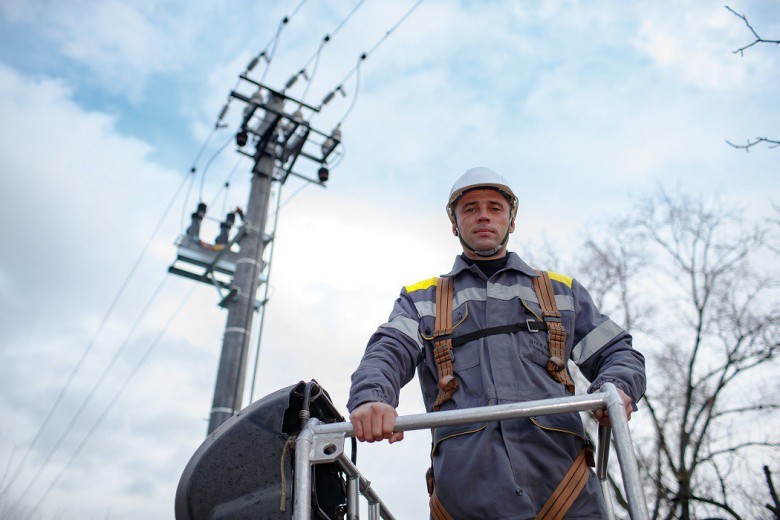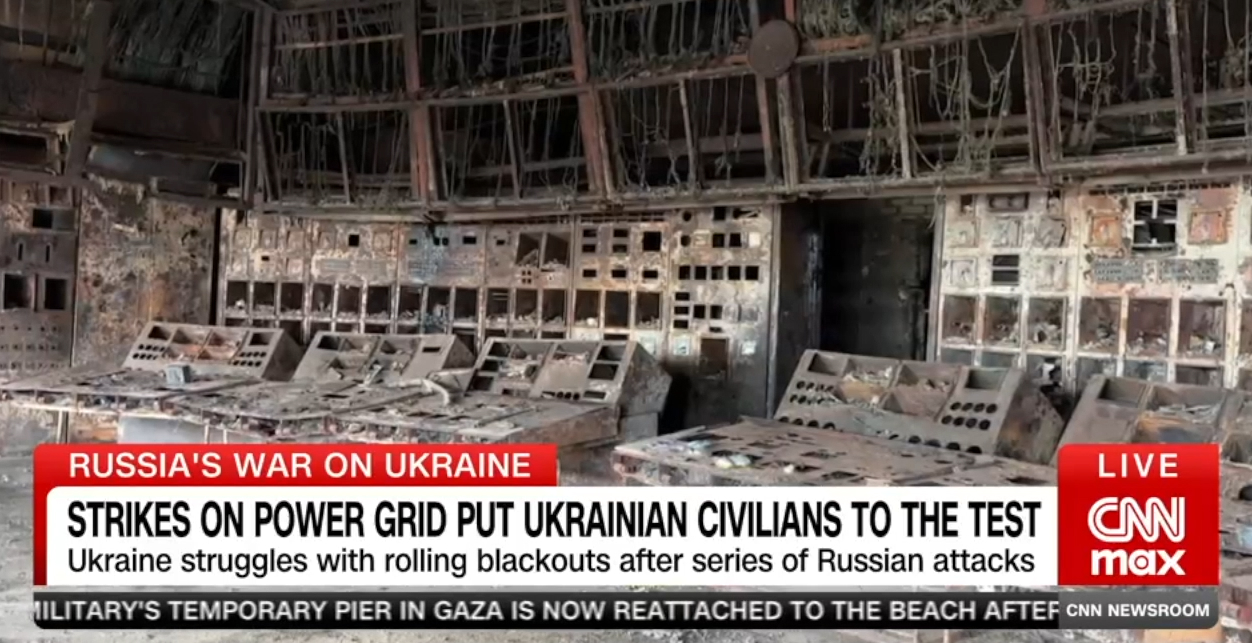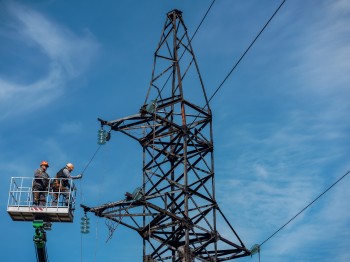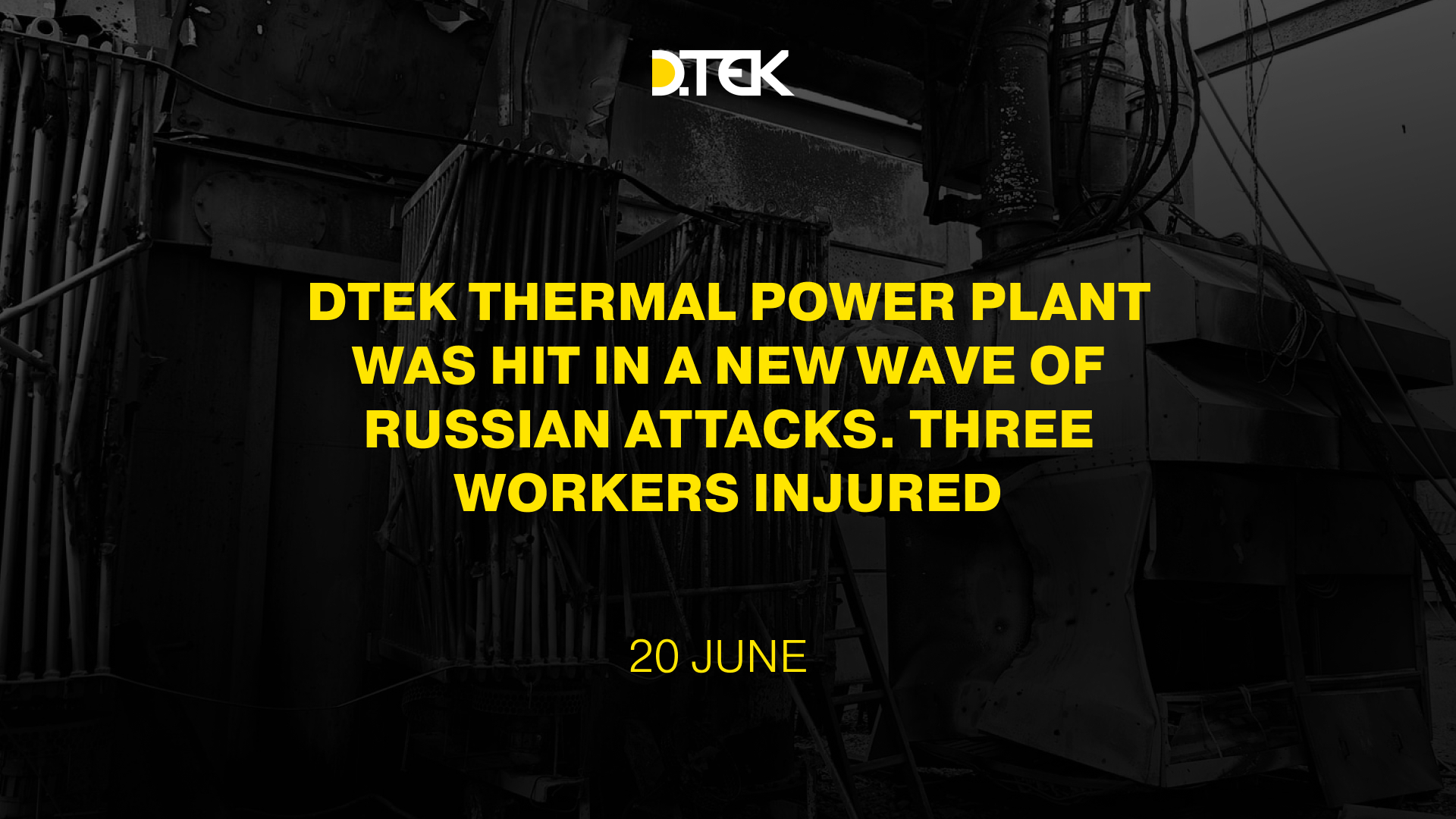In an interview with The Globe and Mail Maxim Timchenko, DTEK CEO, spoke about he found the strength to manage a company under near-constant siege, the challenges ahead, and why he thinks that putin behaves like a desperate dictator.
The workday for the top executives of DTEK Group, Ukraine’s biggest private power-generation company, gets off to a nerve-racking start. At 9 a.m., the dozen or so members of the “crisis team,” led by CEO Maxim Timchenko, review the often grim developments and state of affairs of the previous day: destruction of infrastructure, power availability, employees killed or wounded.
At last count, DTEK had lost 136 employees in the war, with 24 missing and four in captivity. Three of them died at a coal-fired plant that came under Russian attack. One was repairing a power line when he stepped on a land mine. The others were employees who had joined the military and were sent off to the front lines. On Friday, two DTEK employees were injured when four of the company’s power plants – two-thirds of its generating fleet – were hit, triggering blackouts across the country.
How does Mr. Timchenko find the strength to manage a company under near-constant siege? “We have a huge responsibility,” he says. “We need to keep the lights and heat on for the people. We are part of the fight.”
Several air-raid alerts force him to meet with The Globe and Mail in the bomb shelter of DTEK’s new head office, a modern glass block in suburban Kyiv. The shelter is housed on the second level of the underground parking garage. It has been converted into a vast office, with chairs, sofas and desks for hundreds of employees, a coffee bar and storage boxes stuffed with pillows and blankets in case an attack knocks out the heating system. Some employees have prettied up the place up with cheerful murals.
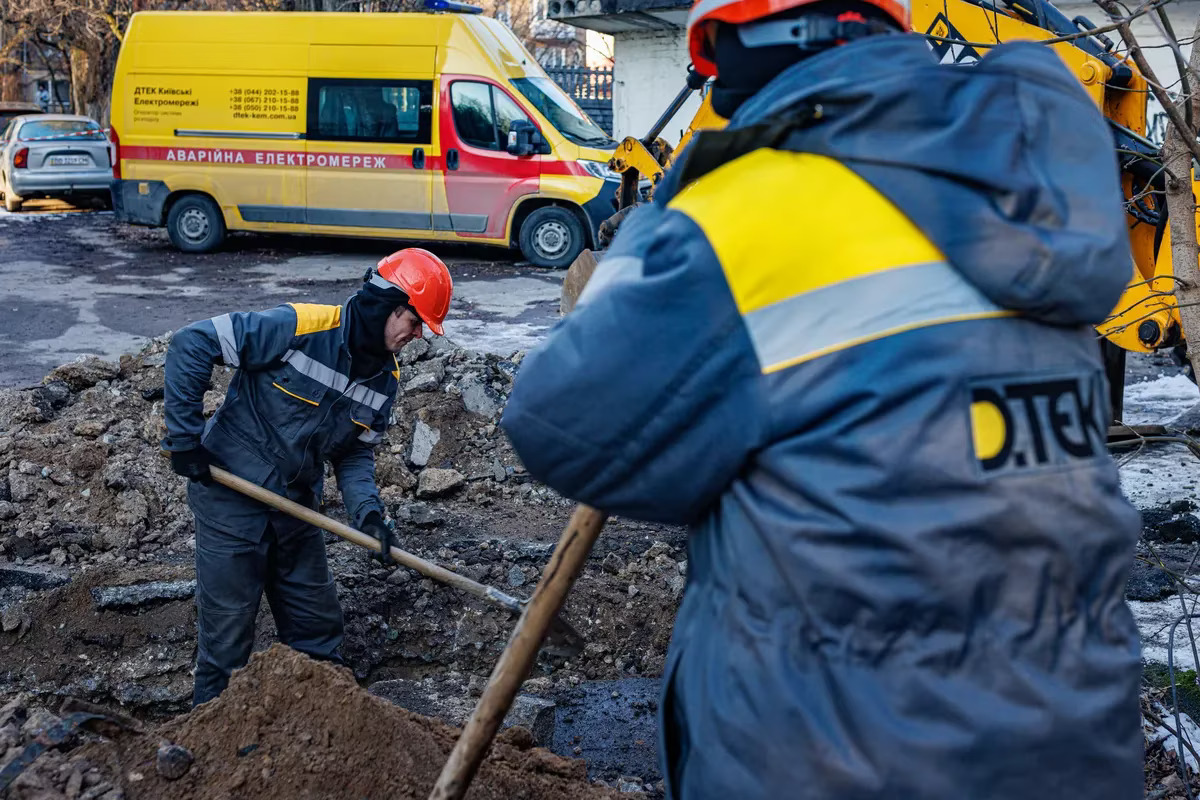
Photo ANTON SKYBA/THE GLOBE AND MAIL
Mr. Timchenko is 47 and has been the head of DTEK since 2005, when the company that generates a quarter of Ukraine’s electricity was founded. It is one of the biggest employers in the country, with 60,000 workers.
Its owner is Ukraine’s richest man, Rinat Akhmetov, who, like many oligarchs, made his fortune in the decade after the collapse of the Soviet Union by snapping up resources and heavy industries on the cheap, in his case mostly mining and steel but also telecommunications, banking and real estate. Forbes put his worth this month at US$4.3-billion, down more than US$9-billion since the war started. Many of his prize assets, including the Azovstal steel plant in Mariupol, the southeastern city that was virtually wiped off the map last spring in the Russian offensive, were located in areas that saw heavy fighting.
Mr. Timchenko is no stranger to crisis. DTEK has been under threat since 2014, when Russia annexed Crimea and Russian-backed separatist groups rampaged through the Donbas region in eastern Ukraine – the two events that foreshadowed the Russo-Ukrainian War. The company lost a dozen coal mines and a big coal-fired plant in the land seizures, after which it invested €1.2-billion in renewable energy to try to replace the missing generating power. The effort largely succeeded.
DTEK continues to lose assets at an alarming rate. Before the war, it had eight power stations. On Feb. 27 – three days after the start of the invasion – one in the far east was overrun in the Russian onslaught. In March, the DTEK coal burner near the Zaporizhzhia nuclear power plant, in southcentral Ukraine, was seized when the Russians took over the whole site (the nuclear plant was shuttered in September).
That left DTEK with six plants, and the company is struggling to keep them powered up. The relentless Russian attacks have seen as much as 60 per cent of Ukraine’s energy facilities, including the national transmission network, operated by state-owned Ukrenergo, damaged or destroyed.
All of the country’s power infrastructure is above ground, making it easy to hit with missiles and drones. Since most of it was installed during the Soviet era, Russian engineers can haul out old maps to pinpoint targets such as 200-tonne electricity transformers for the military.
At any one time, millions of Ukrainians have no electricity. Scheduled rolling blackouts hit Kyiv and other cities every day. When that happens, shop owners and restaurants fire up gasoline-powered generators mounted on the sidewalk, creating a horrific din. Doctors have performed surgeries by flashlight, and musicians have used candles to read their music in concerts. Almost everyone has a flashlight stuffed in a pocket or purse. Police say the number of pedestrians killed in road accidents in Kyiv has soared because the street lights are often off.
Early in the war, Russia pretty much left Ukraine’s power infrastructure untouched. “It appears that Putin thought he would take over Ukraine fast, so why destroy the grid?” Mr. Timchenko says.
But the war got bogged down, and the Ukrainian counteroffensives in the south and east met with spectacular success, after which Mr. Putin decided to attack the power grid.
“He wanted to demoralize our people, and he is also trying to destroy our economy,” Mr. Timchenko says. “It’s the behaviour of a desperate dictator.”
The first big attack on the grid came on Oct. 10, two days after the new bridge that links Russia with Crimea was nearly severed, possibly by a truck bomb. The grid damage meant that Ukraine, suddenly desperate for power, abruptly ended electricity exports to the European Union.
“It was the export of electricity from Ukraine that helped Europe reduce the consumption of Russian energy resources. And that is why Russia is destroying our energy system,” Ukrainian Energy Minister German Galushchenko said at the time.
More attacks came in late November and temporarily shut down almost three-quarters of the country’s power capacity, plunging entire cities into darkness. An attack involving 70 Russian cruise missiles in one day was so severe that it led to blackouts in neighbouring Moldova, whose grid is connected to Ukraine’s.
A month or so later, Mr. Putin changed his tactics yet again, ordering his forces to take out power stations, not just the transmission system. The attack on Jan. 14 was savage, destroying 40 per cent of the generating capacity of DTEK’s largest coal burner, located in western Ukraine. A separate attack on a DTEK plant in the central part of the country took out half its capacity. “In one day, we lost 1,000 megawatts of capacity, equivalent to 25 per cent of our generating capacity,” Mr. Timchenko says. He believes that the devastatingly powerful, long-range Kh-22 missile that hit a residential building in Dnipro that day, killing at least 46 residents, including six children, was meant to destroy the nearby DTEK coal-fired plant. The Ukrainian military has installed anti-aircraft and anti-missile batteries around DTEK’s plants and other generating sites.
While DTEK crews, some clad in body armour, work around the clock to repair damaged sites, Mr. Timchenko is trying to keep the company out of financial darkness. The power-generation side is losing a lot of money, while the oil and natural gas extraction business is still profitable – and would be even more profitable if Ukrainian gas producers were allowed to export during wartime, which they are not. Last year, the DTEK family of companies lost about US$1.2-billion, with the power generation side taking a particularly bad hit. “We really need external financial support,” he says.
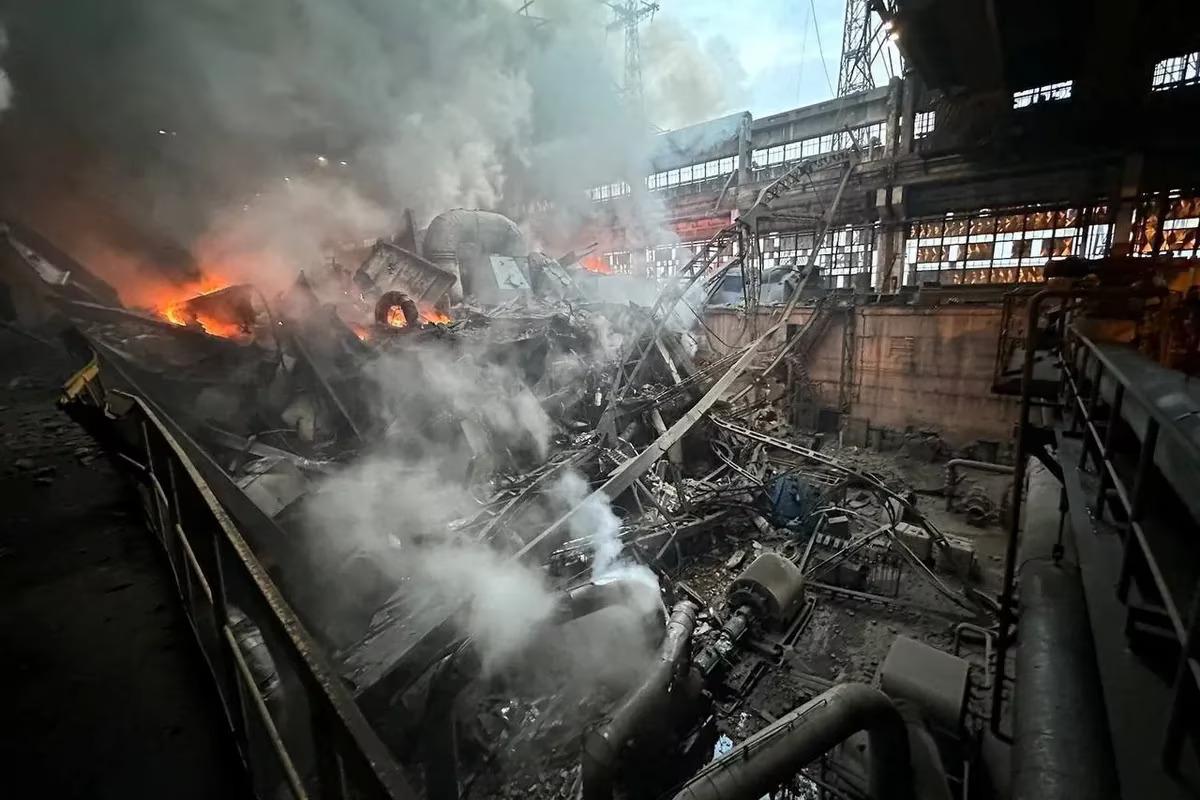
He says DTEK has received relatively small amounts of aid from the company’s European equipment suppliers but zero from the Ukrainian government, which is fighting to keep the lights on, not just for civilians but for industries, various levels of government and the military. Part of the problem, he says, are the price caps that reduce potential income.
Ukraine’s Finance Ministry would not comment on why it provides assistance to Ukrenergo but not to DTEK, beyond the obvious reason that the latter is privately owned.
In a December interview with the RBC-Ukraine business news site, Finance Minister Sergii Marchenko essentially said DTEK is fully capable of fending for itself. “Given the excess profits of the companies in previous periods, given the depreciation of this equipment that was destroyed, I think it is precisely the responsibility of the private owner, even though it was destroyed by war, to find the funds to restore it,” he said.
Mr. Timchenko knows DTEK will have to keep going with or without government help, since everyone in Ukraine has to do his or her bit to keep the country from collapsing – and keep the lights on, in DTEK’s case.
“Russia will not keep plunging Ukraine into darkness,” he says. “I am more than certain no one will freeze this winter.”


